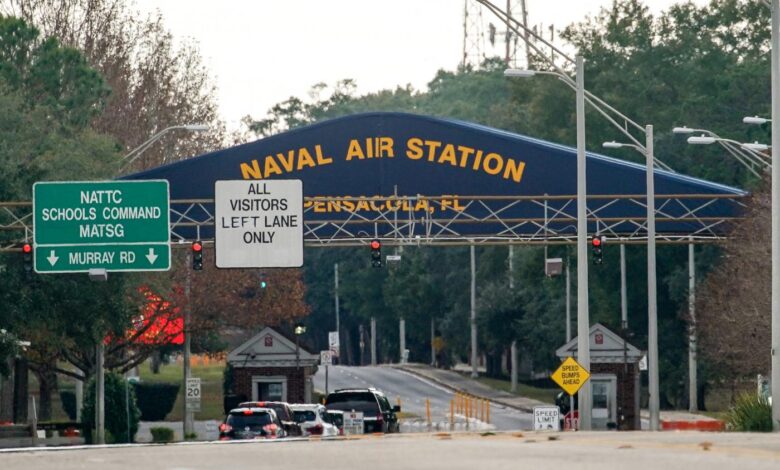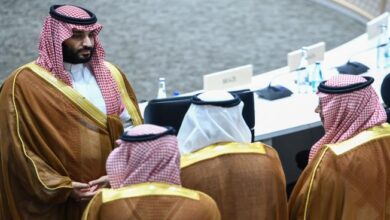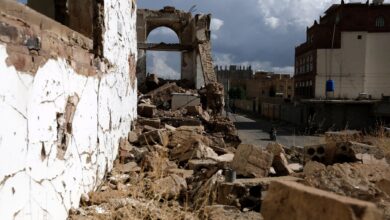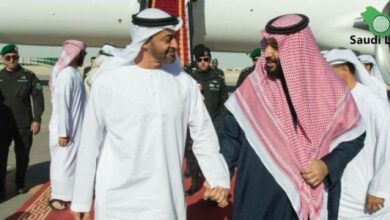US lawsuit blames Saudi Arabia for 2019 Florida naval base shooting

Victims of the 2019 shooting at a US military base in Florida and their families have filed a lawsuit against Saudi Arabia, claiming the kingdom knew the gunman had been radicalised, had connections to al-Qaeda and could have prevented the killings.
The lawsuit was filed on Monday in the Northern District of Florida and centres around the 6 December 2019 shooting at Naval Air Station Pensacola, which left three US sailors dead and 13 others injured.
The gunman, Mohammed Saeed Alshamrani, was a Saudi Air Force officer training at the base and was shot dead by a sheriff’s deputy.
The lawsuit goes beyond blaming Alshamrani for the shooting and asks the court to find Saudi Arabia liable and seeks damages for the attack.
“In the eyes of the American people, there is no greater betrayal than the realization that a purported ally is, in fact, an enemy,” the lawsuit read.
The filing claims that Saudi Arabia knew, or at least should have known, that prior to joining the Saudi Air Force, “Al-Shamrani was a follower of al-Qaeda and AQAP clerics and other extremist ideologues”.
It also says that at a dinner party the night before the attack, Alshamrani discussed his plan to carry out the shooting on the following day with fellow Saudi trainees, but they did nothing to stop it.
Instead, they called in sick that morning. However, one of the trainees recorded the shootings on his cell phone while standing outside the building where the shooting took place and two others watched from a car nearby.
“None of the Royal Saudi Air Force trainees at the scene of the attack reported Al-Shamrani’s behavior nor did they try to stop the NAS Terrorist Attack,” the lawsuit says. “Because they supported it.”
The complaint says both Alshamrani’s fellow Saudi trainees and the Saudi commanding officer on the base were aware that he had purchased and stored firearms and ammunition in his barracks, in violation of both US and Saudi policy.
A ‘Trojan Horse’
The attack prompted an investigation by the administration of former US President Donald Trump. As a result, then-Attorney General William Barr announced last year that 21 Saudi trainees were found to have social medial pages displaying anti-American sentiment, support for armed groups or “contact with child pornography”.
Last May, the FBI said the gunman had been in touch with members of al-Qaeda in the Arabian Peninsula (AQAP) since 2015. Another report from the New York Times a month later found that US and Saudi authorities failed to report on his pattern of “troubling social media activity that connected him with extremist ideology”.
Still, Trump, a steadfast ally of Saudi Crown Prince Mohammed bin Salman (MBS), thanked the kingdom after the attack for what he called “Saudi Arabia’s assistance with the investigation and continued partnership”.
Monday’s lawsuit stated that “Al-Shamrani was a Trojan Horse sent by his country, the Kingdom of Saudi Arabia, and its proxy, al-Qaeda in the Arabian Peninsula, for flight training at Naval Air Station Pensacola, Florida, under the auspices of a program tied to billions of dollars in military arms sales from the United States to the Kingdom.”
“Little did the American people know that such an arrangement would soon devolve into a horrific, Faustian bargain.”
The lawsuit also accuses the Saudi government of reneging on pledges to support the victims’ families, citing a statement where Trump told reporters he had spoken with Saudi King Salman and said, “I think they are going to help out the families very greatly,” referring to Riyadh.
The Saudi embassy in Washington DC did not immediately respond to MEE’s request for comment.
While the shooting occurred at a time of heightened tensions with Iran, the lawsuit comes as the Biden administration has signalled he will take a tougher stance on Riyadh and prioritise human rights in the kingdom.
Earlier this month, Biden announced the US would end support for offensive operations for the Saudi-led coalition in Yemen. Still, he said Washington would continue to help the country defend its sovereignty and territorial integrity.
The administration also issued a temporary freeze on some Trump-era weapons sales to the kingdom as it reviews the purchases.





